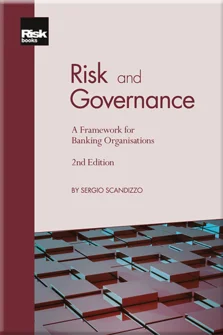Corporate Governance, Information and Control
Introduction: The Confluence of Risk and Governance
Corporate Governance, Information and Control
The Nature of Corporate Governance in Banking
Regulation and Governance
The Centrality of Risk Management
The Mission, Organisation and Governance of Risk Management
A Cartography of Banking Risks
Operations Risk in Extreme Market Conditions
Managing Legal Risk
Managing Reputation Risk
Drawing Boards: Motivations and Responsibilities in the Boardroom
Executive Compensation: Performance, Regulation and Ethics
Fair Value, Auditing and Internal Controls
Risk Management and the Role of Culture
The Board of Directors
Compensation
Auditing, Reporting and Disclosure
From Ronald Coase’s seminal paper on the nature of the firm (Coase, 1937) to Berle and Means’ analysis of the management/ownership separation (Berle and Means, 1932), from the development of agency theory to modern stakeholder theory, corporate governance thinking has followed the evolution of modern corporations and of their role in capitalistic societies. This chapter will therefore survey some of the most important ideas related to corporate governance starting from its definitions, examining the main determinants of various governance systems and arguing that information, and lack thereof, plays a key role in how corporations are controlled and managed.
WHAT IS CORPORATE GOVERNANCE?
The word governance is derived from the Greek κυβερνάν, which literally means “to steer”, and was originally used with a political meaning by Plato in The Republic as well as by several other ancient philosophers (Naddaf, 2005). That the term “corporate governance”, derived by analogy with the governance of nations, has become of common use in scholarly literature and in political debates alike is just one sign of how modern corporations have acquired an importance comparable to that of nations
Copyright Infopro Digital Limited. All rights reserved.
As outlined in our terms and conditions, https://www.infopro-digital.com/terms-and-conditions/subscriptions/ (point 2.4), printing is limited to a single copy.
If you would like to purchase additional rights please email info@risk.net
Copyright Infopro Digital Limited. All rights reserved.
You may share this content using our article tools. As outlined in our terms and conditions, https://www.infopro-digital.com/terms-and-conditions/subscriptions/ (clause 2.4), an Authorised User may only make one copy of the materials for their own personal use. You must also comply with the restrictions in clause 2.5.
If you would like to purchase additional rights please email info@risk.net











